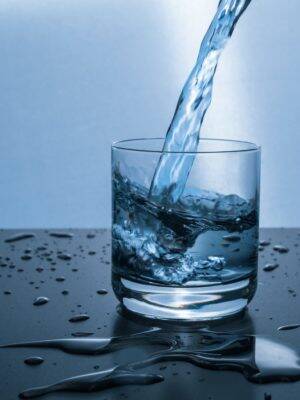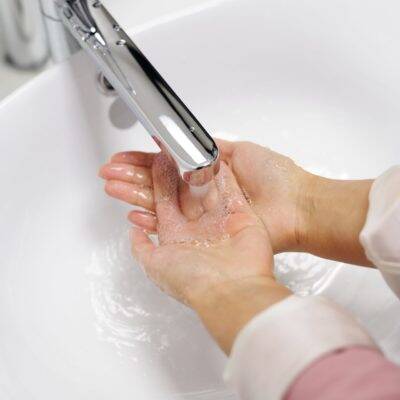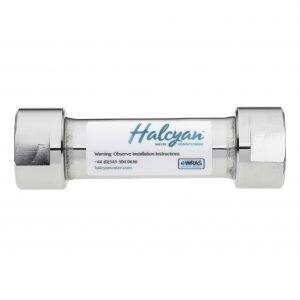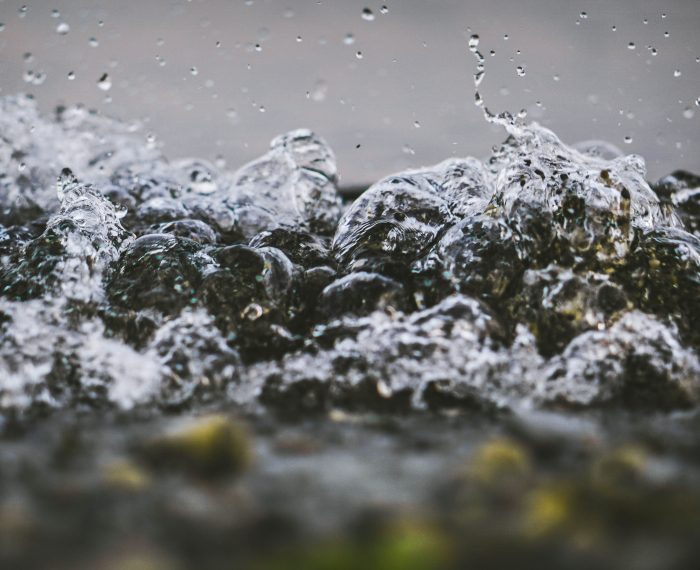Hard water is well known to much of the UK (over 60% in fact!). Though we are unfortunately familiar with the impacts of hard water on bathroom and kitchen surfaces we know much less about hard water and its health effects. There seem to be a lot of spurious and unfounded claims made regarding hair and skin, often by businesses with an agenda to push.
So is hard water safe to drink? Is hard water bad for your skin and hair? Are there benefits to drinking hard water? In this article we’ll be covering all of these questions and more. We’ll be referencing the current understanding and science covering these subjects and hopefully making you feel more informed about the water you drink and use.
What is in Hard Water?
So, what’s in hard water and what effects may it have on health? The most simple and straightforward definition of hard water is water that has a high concentration of dissolved minerals – primarily calcium and magnesium. Soft water is the direct opposite of this with little to no minerals dissolved in it.
Magnesium Health Benefits
Magnesium is very important to the human body. It plays a key role in the functions of cells primarily in energy production but also in enzyme reactions important for all sorts of key bodily processes such as muscle and nerve function, blood sugar control and blood pressure regulation. Most of the body’s magnesium is present in the bones with the rest distributed through soft tissue. Regular intake of magnesium is very important in staying healthy. The NHS recommend that adult men should consume 300mg of magnesium a day and women should consume 270mg a day. Low levels of magnesium can increase the risk of several serious health conditions due to higher inflammation in the body. These include heart disease, diabetes, and osteoporosis. There is also some evidence that magnesium can help reduce high blood pressure.
Calcium Health Benefits
Of the minerals in the human body, calcium is the most abundant. Almost all of the body’s calcium is stored in bones and teeth. Here it is used to repair and remould the existing structure ensuring that they remain healthy and strong. The remaining calcium is used in several key bodily functions, it is required in the human heartbeat, for muscular and nerve functions and in hormone secretion. The NHS recommend that adults need 700mg of calcium a day. Low levels of calcium intake don’t produce any obvious short-term problems but in the long term can lead to weakened bones, risking the development of osteoporosis. The risk of this is much higher in older individuals.
Drinking Hard Water: Good or Bad for your health?
So, what are the effects of drinking hard water on health, if any? Are there any downsides or perhaps benefits to doing so? Sadly, these questions aren’t as easy to answer as you would assume. Despite the fact that the minerals found in hard water are key to a healthy human body.
This area has not received much attention in the scientific community and there are few studies tackling this topic directly. However, we can make some assumptions based on the work that has been done and on the advice of official bodies around the world. It is generally understood that there are no known negative effects from drinking hard water as stated by the WHO in its Geneva Conference.
It is the positive effects where things get a little more complicated. Many health bodies suggest that hard water is an excellent supplemental source for Magnesium and Calcium. There are numerous studies which seem to support this. They show that in areas with hard water there seems to be a positive impact on rates of cardiovascular disease and on some forms of cancer. However, it is important to note that these studies are not conclusive, not enough have been done and many have methodologies which could easily be affected by confounding variables.
One problem that is sometimes linked to hard water is an increased risk of kidney stones. Most evidence points to there being little to no effect on kidney stone formation caused by hard water. Other variables such as genetic risk and dehydration play a much more significant role in the formation of kidney stones.
So what to take away from all of this? The general evidence and advice seems to imply a positive effect from dinking hard water. Especially for people who aren’t getting enough calcium and magnesium through their diets. But more work needs to be done to confirm these health effects. At worst hard water is entirely neutral with no positive or negative impacts.
What about softened water?
So what about drinking softened water? Water softeners remove the hard water minerals from the water and replace them with sodium ions. This means that you lose any potential benefit of ingesting those minerals which you would have had from the hard water. There is also a small risk of increased blood pressure and other issues due to increased sodium intake, though the numbers are so small that this is highly unlikely. Pregnant women and babies should definitely not drink softened water. For these reasons British Water recommend that in properties with water softeners installed that a non-softened tap is left for drinking to avoid increasing the daily sodium intake from the water.

Hard Water: The Other Health Effects
Hard Water and Limescale
It’s clear that hard water causes limescale. While most of us are familiar with the impacts limescale has on our shiny bathroom and kitchen fittings many are unfamiliar with the health ramifications of rampant limescale, especially in areas such as the bathroom.
Limescale is a breeding ground for bacteria and other microorganisms. The rough craggy surface of a limescale deposit is full of nooks and crannies and with plenty of moisture to boot. In these areas bacterial colonies are likely to build up and if left uncleaned and unchecked can form something called a biofilm. This is the familiar reddish slimy film you’ll see in an uncleaned bathroom. A biofilm is a collection of bacteria and microorganisms which have collected together. Other than looking unpleasant a biofilm can permanently stain or pit surfaces and while most of the bacteria in these colonies are fairly benign it, they can be home to more sinister critters such as Legionella.
Hard Water and Skin
Most people in hard water areas will report having problems with dry skin. Does the science back this notion up? As with many subjects relating to hard water there has not been much study on this topic. However, what research has been done suggests that hard water does cause problems with skin. The reason for this appears to be the interaction between the hard water minerals and soaps and shower gel. These products don’t lather nearly as well with hard water. Traces of the product are left on the skin disrupting the skin barrier and blocking pores drying out skin and leading to breakouts in some cases.
There is also a suggestion that hard water increases the chance of eczema developing in young children. Soft and treated water appears to counteract this negative effect by lathering the soap more effectively. This reduces the amount of product left on the skin after a shower or a bath.
Hard Water and Hair
Much like hard waters effect on skin it is also often reported by those of us in hard water areas have problems with our hair. Issues reported include damage to the hair causing it to appear dull, frizzy and brittle. Some even claim that hard water can cause hair loss. So what does the research say about this? Once again there have not been many studies examining the effects of hard water on hair. Those that have been done are contradictory. Some suggest that hard water doesn’t damage the hair at all. Others have shown a clear loss of tensile strength of the hair exposed to hard water. Studies also showed reduced thickness in hair and higher levels of mineral deposits left on the surface of the hair. As with most hard water health issues more research is need before any firm conclusions can be drawn.

Final Thoughts on Health and Hard Water
We hope this article has been useful in summing up the health effects of hard water and given some context to what you may be experiencing in your home. Whilst there is much more work to be done in this field it is clear that hard water is positive in some ways and negative in others. When shopping for a system which deals with hard water be very wary of products which definitively claim that they will help with medical conditions such as eczema. Whilst you may see benefits of that kind, no product on the market is medically certified to do so and therefore cannot guarantee results of this kind.
If you would like to know more about how Halcyan impacts the effects of hard water please check out our FAQ’s below!




